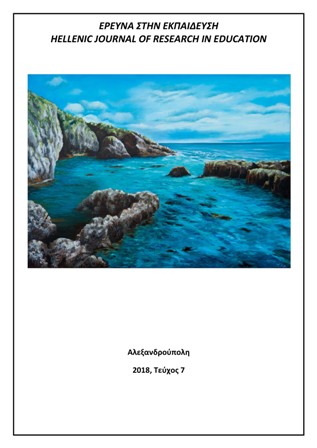Historical evolution of the education executives’ selection systems during the metapolitefsi

Abstract
The education executives’ selection is a very important process in the function of education as these executives, according to law, have the responsibility to manage and implement education policy.
Since 1982, when the permanency of education executives was abolished by Law 1304/1982 and subsequently by Laws 1566/1985, 2187/2000 and finally by Law 4547/2018, which instituted the current management and mentoring model in education, eighteen (18) legislative texts (and many others with minor modifications) have been introduced. It appears that for more than 35 years, until 2018, the Greek State did not achieve the necessary political and educational union consensus, to clearly describe the needs and requirements of each position in order to reach the criteria must meet the persons who will fill these posts and come up with an effective, reliable, objective and acceptable Law.
This article presents a historical review and records education executives’ selection processes since 1982. Through this retrospective, comparative presentation and creative-critical reflection tried to realize changes to draw conclusions for a stable and permanent process.
Article Details
- How to Cite
-
Κελεσίδης Ε. Α. (2018). Historical evolution of the education executives’ selection systems during the metapolitefsi. Hellenic Journal of Research in Education, 7(1), 81–99. https://doi.org/10.12681/hjre.18123
- Issue
- Vol. 7 No. 1 (2018)
- Section
- Articles

This work is licensed under a Creative Commons Attribution-NonCommercial-ShareAlike 4.0 International License.
Authors who publish with this journal agree to the following terms:
- Authors retain copyright and grant the journal right of first publication with the work simultaneously licensed under a CC-BY-NC-SA that allows others to share the work with an acknowledgement of the work's authorship and initial publication in this journal.
- Authors are able to enter into separate, additional contractual arrangements for the non-exclusive distribution of the journal's published version of the work (e.g. post it to an institutional repository or publish it in a book), with an acknowledgement of its initial publication in this journal.
- Authors are permitted and encouraged to post their work online (preferably in institutional repositories or on their website) prior to and during the submission process, as it can lead to productive exchanges, as well as earlier and greater citation of published work (See The Effect of Open Access).


